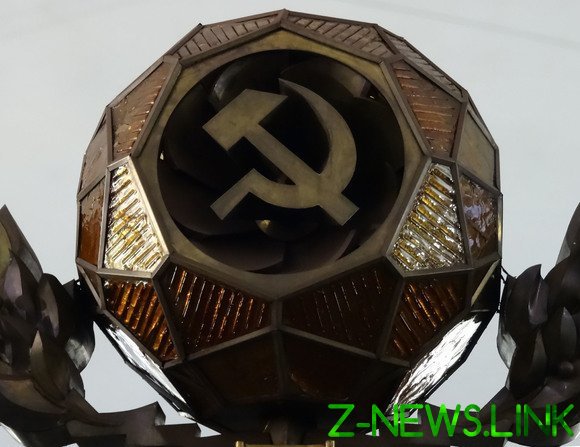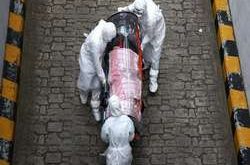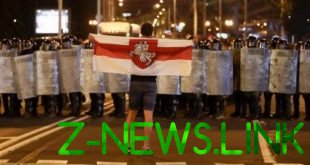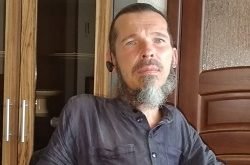
Formed as a new personality type to the mid-twentieth century, the Soviet people played today, after almost 30 years since the collapse of the Soviet Union.
At the Jewish Museum and tolerance centre hosted a regular discussion of the series “one Hundred years of Soviet man”. We appeared to be not very much has changed since then.
“There was a hypothesis that with the departure of the Soviet generation, which was formed in a very harsh and repressive regime, come new — with completely different attitudes, more tolerant, free-based on human rights. It seemed to us that as the people who didn’t know what a “Soviet life”, the system will change. The idea was to track how these changes occur. The first study we conducted in early February 1989, and since then, every four or five years repeating it on the same questionnaire. In the early 1990s, we have seen that this hypothesis is confirmed, but in the years 1994-99, it became clear that the Soviet people played,” — said the sociologist, Director of the Analytical center of Yuri Levada Lev Gudkov.
According to him, during the existence of the USSR, we got the man adapted to the repressive state. “It is extremely important that this man, on the one hand, identificeret itself with the Imperial state, but at the same time understand that the government always cheat, and trying to get away from control. This man is extremely cautious, passing through incredible slaughter. Wicked, cynical, trusting only those closest, internally aggressive, not capable of sustained effort, but tend to leap. In essence, the Soviet people focused on physical survival, well-being exclusively preoccupied with their and their families”, — suggested hooters.
“Our society, which was declared the ideal of collectivism, in fact, it was very atomized. The chief moral imperative was imperative the camp: you die today and I tomorrow,” agreed the sociologist of culture, historian, member of the Free historical society Anatoly Golubkovsky.
But then it is not very clear, where did “traditional values”, which we repeat all the time, contrasting them to those that impose the West, noted the moderator of the discussion, the psychologist, the political scientist, the President of the Fund “Perspective” Leonid Gozman.
According to Golubovsky, the top brass took over the “traditional values” in the early 2000s, when it became necessary to determine the continuity of the current government relative to what it was.
“Then it became clear that Russia is gradually building up an authoritarian regime, where the main value — moral, spiritual, what you want — is the state. Such a system certainly had something to lean on. There’s the concept that we have here a special Russian civilization, which has some special values. Ever since the Stalinist era, the government didn’t pay much attention to the culture that has become the main tool in this work. Issued a document no status — no law, no decree or the program, signed by then President Putin of the Basics of the state cultural policy. It began with attempts to formulate a list of traditional Russian values. But since it was not cultural, not social scientists, not art historians, and government officials-bureaucrats, they have all the time something did not work, and in the same row with respect to the state and family values suddenly arose, for example, chastity. Then decided not to bother with a list, just to say that we have traditional values. And when they do something like, for example, the Opera “tannhäuser”, it is always possible to refer to them. Thus, the new values have not appeared, and this concept was used as a punitive tool: “All that is not consistent with the values to be immoral, soulless. But what they are is secret”” — believes Golubovsky.
According to Gudkov, the current regime is trying to be legitimized through an appeal to a fictional past that never existed. His main thesis — the unity of government and people, the priority of state interests. “In this coordinate system the government is not responsible to the people, not represent it. She cares about the greatness of power. The consequence is a devaluation of individual life. Hence arise the ideas of loyalty, sacrifice, spirituality, which is understood as the ability to live for the sake of the state. Appeal to light the past is a necessary condition for the legitimization of the system, protecting it from any criticism, analysis, sacralizes her. Any statement about human values and causes irritation and doubt of loyalty to the authorities”, — the expert believes.
Now it is the state and its institutions, according to Golubovsky, are sources of spirituality, morality and the values. “That is, these values are not by themselves. They must be codified. For example, in the principles of state cultural policy”, — he said.
When the polls “Levada-Center” people describe themselves, most other sound features: simple, kind, hospitable, patient. “But patient — in relation to what? But what force pushes us to suffer and suffer? This becomes the main characteristic of us as a community. We are the people sufferers. This is the most important trait that compensate for the feeling of dependence, underestimation, humiliation, vulnerability to power,” suggested hooters.
And, according to him, the Soviet people, not ethnic characteristics. The same features noted by sociologists in East Germany, Poland, the Czech Republic. This is the type prevailing in socialist systems. And yet in Russia, it feels way hotter.
“That is unprecedented in the history of civilization, the level of violence in relation to personality, which Russia has experienced especially in the first half of the twentieth century has changed the concept of normal, accustomed society to the fact that nobody owns him. Deviant has become normative,” — said Golubovska.
According to Gudkov, 80% of Russians believe that most people can not be trusted. “We are on a scale of trust in people are in the bottom third of the list of countries among the extremely poor. In the Scandinavian countries the picture is different. There are 70 to 80% trust and society, and institutions, as they themselves are included in these relations, is responsible for it. And we have solidarity exists only in relationships. Society is very fragmented. Complete apathy and unwillingness to participate in public Affairs. Tribal consciousness. In Rome one million people came to the rally after the murder of Politkovskaya. How many come with us?” — said the head of “Levada-Center”.
In society there is a great lack of reflection, of empathy and solidarity, which had been removed from consciousness in the Soviet years, enforced by methods agreed Golubovsky. And the law supported such a position, he said. Take, for example, the law on rallies.
However, not so long ago in Russia there was a vast volunteer movement, and people began to unite to solve some specific problems. “The government is closely monitoring the sprouts of civil society, because it understands that such self-organization occurs only on the basis of values. People suddenly begin to understand that the state is not important that the person is actually more important. And what they do, helping patients, searching for missing children, to perform the functions that were supposed to handle power. The state can not tolerate it, and he wants to rake up under him. Invent some special institutions, which are beginning to unite volunteers” — said Golubovska. Exactly that happened with the “Immortal regiment”. Related to this is the tightening of control in the nonprofit sector, he said.
“The Bulk of them stomps too, not because he has any real prospect. He just provoked self-organization in society. And this cannot be tolerated. Therefore, activists are put in different cities throughout Russia”, — expressed the opinion Golubovsky.
The same is now happening in the suburbs, where people take away local government, converting the municipality in the city district, he said. “In any settlement, the people had 15 members, which they maybe did not know, but after this reorganization will not be any. And people suddenly realized that there is a place where they live. They have some kind of identity. And all this under threat. They take to the streets where I never left. People unite against dumps. And it is also self-organization,” — said Golubovska.
“Volunteers, I think it’s the people who suddenly, for some reason, felt a personal responsibility: if not you, then no. And in this sense it is not quite “Soviet man” — said Gozman. But to say that everything has changed society very early.
As it happened, Soviet authorities for 30 years managed to create a new type of Soviet man, and after the “counter-revolution of 1991”? The fact is that no counter-revolution was not, says Gudkov. “The collapse of one institutional system does not mean that all the others have failed. I mean education, court, army. They have not changed, and provided the continuity and reproduction of power, the repressive and legal practices,” he said. In certain features. According to the expert, we are dealing with a secondary totalitarianism.
“We are all the same as the Soviet anthem, the monuments to Lenin on the main streets of the city and near the administration buildings. Five years ago, regained the title of “Hero of labour”. This is an important symbolic environment that people see every day but don’t even realize. It returns us to the man of the Soviet”, — said the expert.
According to Golubovsky, to change this, you need to recognize the totalitarian Soviet regime in the criminal court, the monuments to be moved to museums. “No place on the main streets of the cities, the monuments to the people who plunged the country into a monstrous civilizational disaster,” he said.
© 2019, paradox. All rights reserved.





